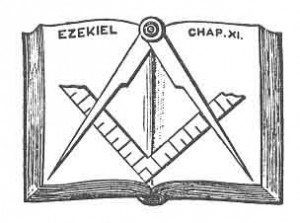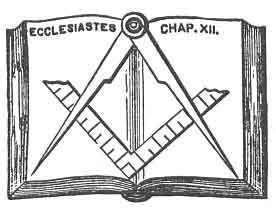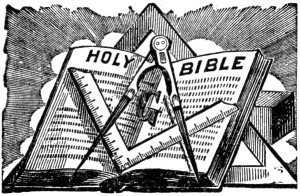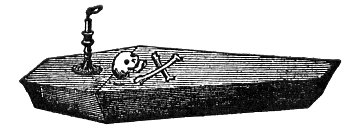p. 89
of cohesion, by which the sandy particles became the solid rock. If this law of attraction or cohesion were taken away, the material worlds and suns would dissolve in an instant into thin invisible vapor. If the ties of friendship, affection, and love were annulled, mankind would become a raging multitude of wild and savage beasts of prey. The sand hardens into rock under the immense superincumbent pressure of the ocean, aided sometimes by the irresistible energy of fire; and when the pressure of calamity and danger is upon an order or a country, the members or the citizens ought to be the more closely united by the cohesion of sympathy and inter-dependence.
Morality is a force. It is the magnetic attraction of the heart toward Truth and Virtue. The needle, imbued with this mystic property, and pointing unerringly to the north, carries the mariner safely over the trackless ocean, through storm and darkness, until his glad eyes behold the beneficent beacons that welcome him to safe and hospitable harbor. Then the hearts of those who love him are gladdened, and his home made happy; and this gladness and happiness are due to the silent, unostentatious, unerring monitor that was the sailor’s guide over the weltering waters. But if drifted too far northward, he finds the needle no longer true, but pointing elsewhere than to the north, what a feeling of helplessness falls upon the dismayed mariner, what utter loss of energy and courage! It is as if the great axioms of morality were to fail and be no longer true, leaving the human soul to drift helplessly, eyeless like Prometheus, at the mercy of the uncertain, faithless currents of the deep.
Honor and Duty are the pole-stars of a Mason, the Dioscuri, by never losing sight of which he may avoid disastrous shipwreck. These Palinurus watched, until, overcome by sleep, and the vessel no longer guided truly, he fell into and was swallowed up by the insatiable sea. So the Mason who loses sight of these, and is no longer governed by their beneficent and potential force, is lost, and sinking out of sight, will disappear unhonored and unwept.
The force of electricity, analogous to that of sympathy, and by means of which great thoughts or base suggestions, the utterances of noble or ignoble natures, flash instantaneously over the nerves of nations; the force of growth, fit type of immortality, lying dormant three thousand years in the wheat-grains buried with
p. 90
their mummies by the old Egyptians; the forces of expansion and contraction, developed in the earthquake and the tornado, and giving birth to the wonderful achievements of steam, have their parallelisms in the moral world, in individuals, and nations. Growth is a necessity for nations as for men. Its cessation is the beginning of decay. In the nation as well as the plant it is mysterious, and it is irresistible. The earthquakes that rend nations asunder, overturn thrones, and engulf monarchies and republics, have been long prepared for, like the volcanic eruption. Revolutions have long roots in the past. The force exerted is in direct proportion to the previous restraint and compression. The true statesman ought to see in progress the causes that are in due time to produce them; and he who does not is but a blind leader of the blind.
The great changes in nations, like the geological changes of the earth, are slowly and continuously wrought. The waters, falling from Heaven as rain and dews, slowly disintegrate the granite mountains; abrade the plains, leaving hills and ridges of denudation as their monuments; scoop out the valleys, fill up the seas, narrow the rivers, and after the lapse of thousands on thousands of silent centuries, prepare the great alluvia for the growth of that plant, the snowy envelope of whose seeds is to employ the looms of the world, and the abundance or penury of whose crops shall determine whether the weavers and spinners of other realms shall have work to do or starve.
So Public Opinion is an immense force; and its currents are as inconstant and incomprehensible as those of the atmosphere. Nevertheless, in free governments, it is omnipotent; and the business of the statesman is to find the means to shape, control, and direct it. According as that is done, it is beneficial and conservative, or destructive and ruinous. The Public Opinion of the civilized world is International Law; and it is so great a force, though with no certain and fixed boundaries, that it can even constrain the victorious despot to be generous, and aid an oppressed people in its struggle for independence.

Moe is the founder of GnosticWarrior.com. He is a father, husband, author, martial arts black belt, and an expert in Gnosticism, the occult, and esotericism.








